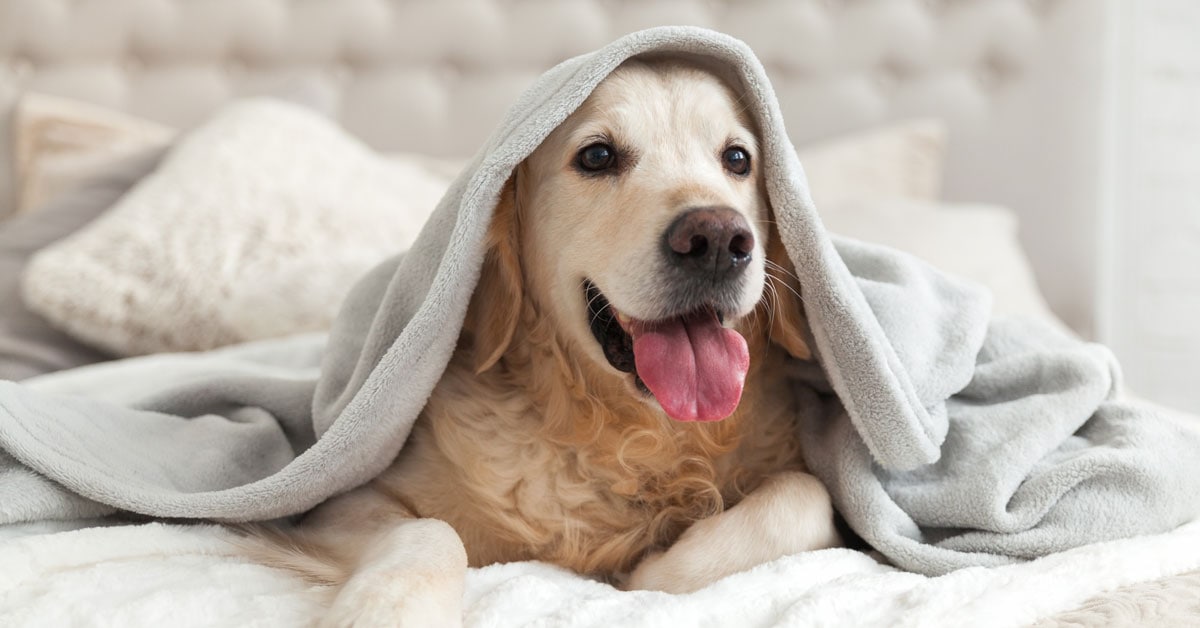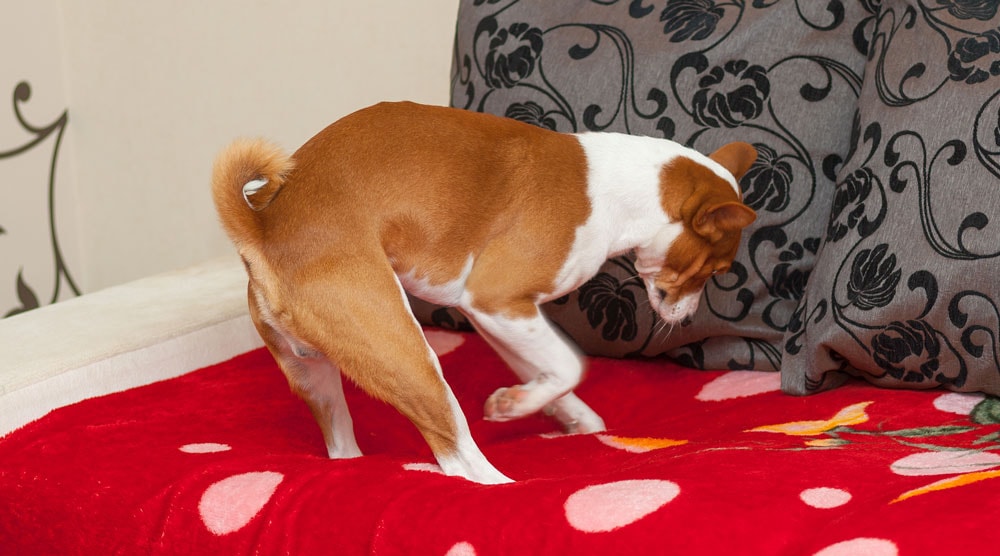Dogs have some peculiar habits, and one of them is licking blankets. While the occasional lick is normal, excessive licking can indicate underlying issues such as anxiety, illness, boredom, or nausea. In this article, we will explore the common reasons why dogs lick blankets and provide tips on how to prevent this behavior.
Licking Isn’t Always a Sign of a Problem
Licking is an instinctive behavior for dogs. From a young age, puppies lick their mothers as part of the weaning process, which shows that dogs are born with this instinct. As they grow, dogs use licking to communicate and learn about their environment. Licking serves various purposes, including exploring the surroundings, investigating interesting scents, showing affection, cleaning themselves, and soothing anxiety. So, it’s not surprising that dogs occasionally lick strange things, including blankets. They might be trying to examine a peculiar smell or taste some leftover food on the blanket. However, excessive licking can indicate a health or behavioral issue, and it is important to seek veterinary advice if your dog is obsessively licking their body, the air, or objects.
Why Do Dogs Lick Blankets?
1. They Are Feeling Anxious
Anxiety can trigger dogs to lick blankets or other objects as a way to self-soothe. Licking releases “feel-good” hormones in a dog’s brain, helping them feel better in stressful situations. Occasional blanket licking due to stress is normal, but chronic anxiety should not be ignored. If your dog is consistently licking the blanket, it is crucial to identify the underlying trigger. Some factors to consider are specific noises, new additions to the household, changes in the environment, routine, diet, or the presence of a scary object. Once you have identified the trigger, you can work on minimizing its impact by removing the object, providing a quiet space, or seeking the help of a dog behaviorist for a desensitization program.
2. The Blanket Has an Attractive Taste or Smell
One of the most obvious reasons for dogs licking a blanket is that it tastes or smells good to them. Dogs have a keen sense of smell and can be attracted to the scent of food, drinks, human sweat, or other pets on the blanket. Even if it seems disgusting to us, dogs explore the world through their sense of smell, and licking allows them to examine scents more closely. If your dog manages to taste something on a blanket, such as spilled food, they may lick it again in the future.
3. Health Issues
Excessive licking of blankets or other objects can be a sign of underlying health problems. Dogs use their tongues to explore their surroundings, but if your dog is constantly licking themselves or random objects, it is recommended to have them checked by a vet. Some health issues that may cause dogs to lick blankets include pain, dehydration, hunger, acid reflux, gastrointestinal problems, and canine dementia. Certain conditions may also lead to excessive licking of specific body parts, such as allergies, parasites, or skin conditions.
4. Boredom
Like humans, dogs seek positive feelings and distractions when they are bored. Licking blankets, the floor, or their bodies is one way for dogs to relieve boredom. If your dog exhibits this behavior, it is essential to provide enough physical and mental stimulation. Ensure they receive regular exercise based on their breed, age, and health. Use puzzle feeders to provide mental stimulation during meals. Avoid leaving your dog alone for extended periods; arrange for companionship or hire a dog sitter. Engage in games and give them plenty of attention to prevent boredom.
5. Nausea
Blanket licking is often a response to nausea in dogs. Licking can distract from the unpleasant feeling and provide temporary relief. Nausea can have various causes, including eating poisonous food, dietary allergies, digestive system blockages, parasites, or diseases. If your dog shows signs of nausea such as vomiting, drooling, panting, lethargy, or loss of appetite, it is crucial to seek immediate veterinary care.
Why Do Dogs Fluff Up Blankets?
Many dog owners have witnessed their furry friends fluffing up or digging their bedding. This behavior has roots in their wild instincts. Dogs evolved from animals that needed to create a secure and dry bed in the wild. Digging a hole in the ground provided protection against wet or cold weather, while leaves acted as a soft bedding material. This behavior may also have helped in disturbing small animals hiding in the undergrowth.
What Can You Do About Your Dog Licking Blankets?
There isn’t a one-size-fits-all solution for dogs licking blankets, as the approach depends on the underlying cause. However, here are some general tips to address the behavior:
- If boredom is the root cause, ensure your dog receives enough mental and physical stimulation throughout the day.
- If the licking started recently, consider any changes or events that may have triggered anxiety. Addressing the source of anxiety can help alleviate the behavior.
- If your dog consistently licks the same blanket, try replacing it with different bedding to break the habit. Also, make sure to remove and wash any blankets with food spills before your dog finds them.
- Consult with a vet if the behavior persists for an extended period or if your dog shows other symptoms of illness.
- If no health problems are identified, the licking may be a behavioral issue. In such cases, it is recommended to seek guidance from a qualified dog behaviorist who can assist with a training plan.
Frequently Asked Questions
Coming soon!
Conclusion
Understanding why dogs lick blankets can help pet owners address the behavior effectively. While occasional licking is normal, excessive or obsessive licking may indicate underlying issues that require attention. By identifying the cause and providing the necessary care and stimulation, dog owners can help their furry companions lead healthier and happier lives.
If you have any questions or concerns about your dog’s behavior, feel free to reach out to us at Pawsoha. We are dedicated to providing information and support for pet owners.

